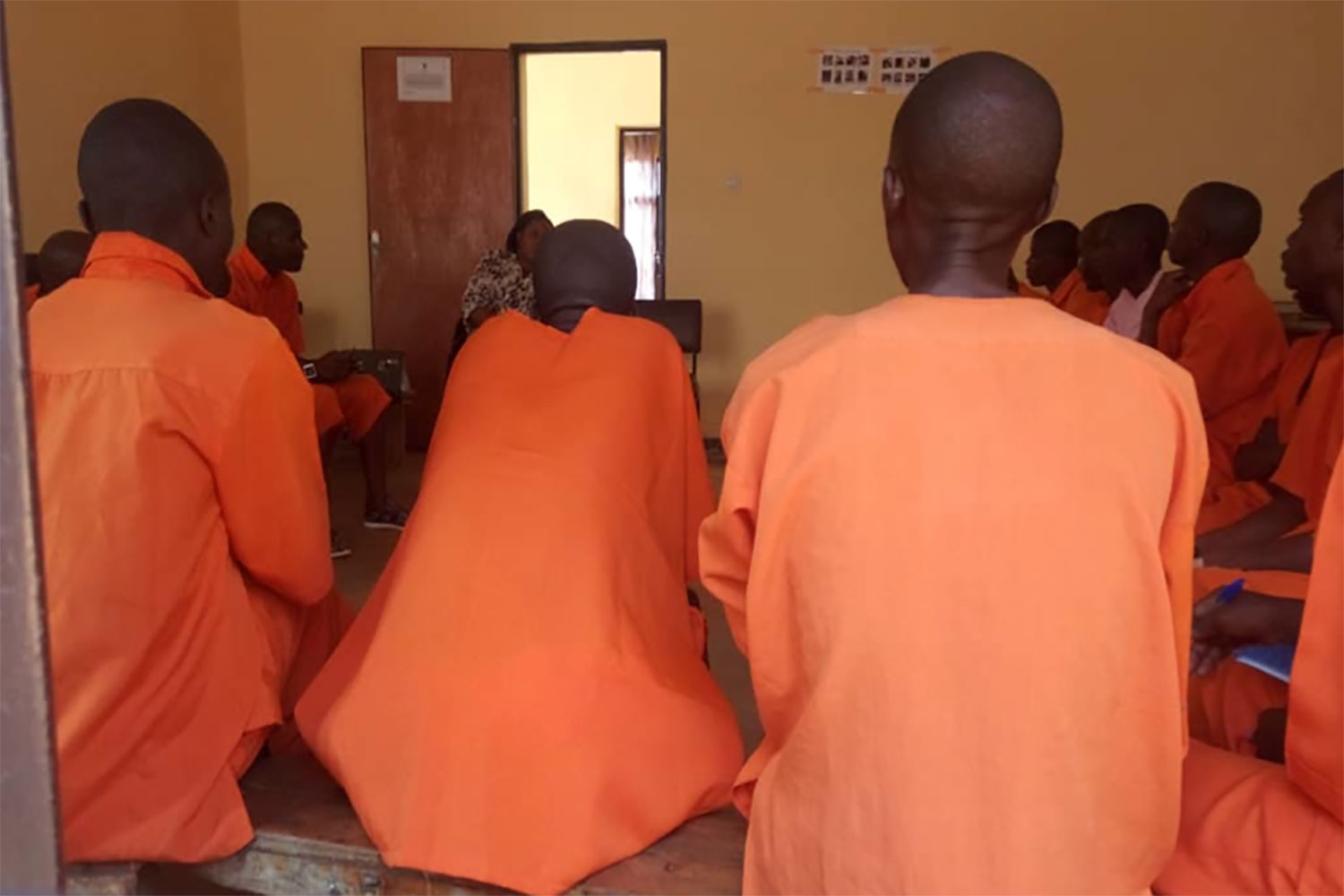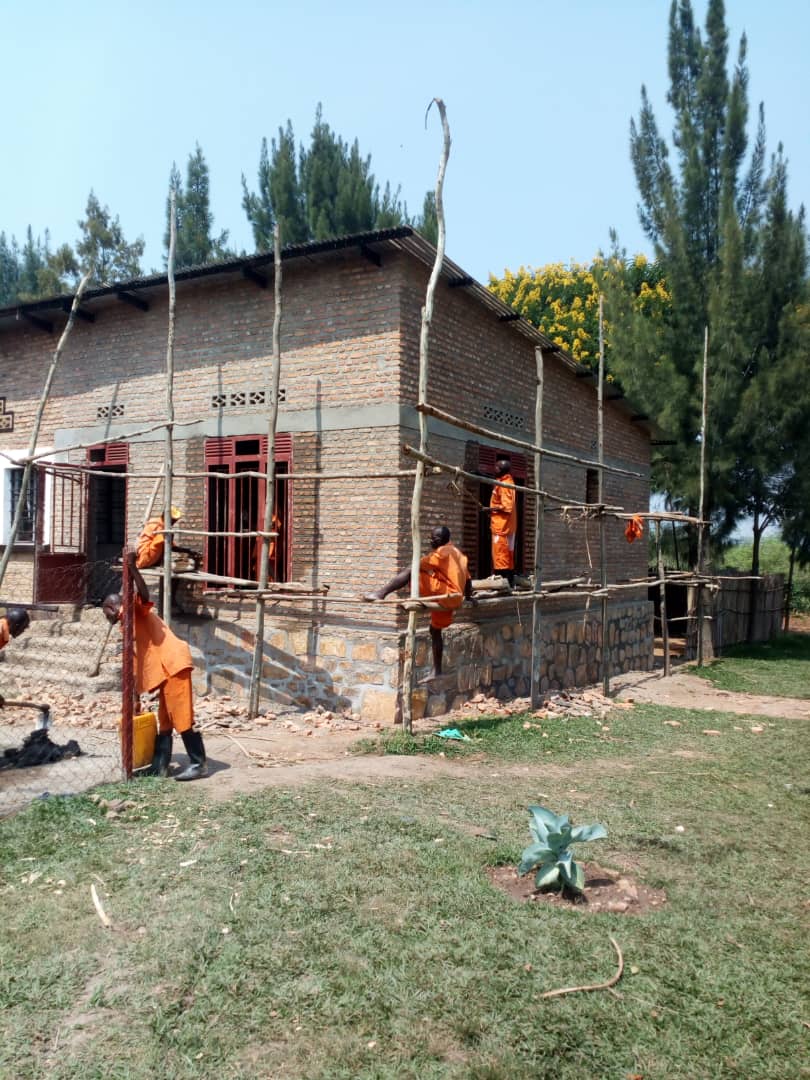It is with enthusiasm that the DiDé Foundation starts this new year. Aware of the necessity and the added value of our actions, our commitment during this year 2019 to improve the living conditions of people in detention will remain intact. However, this commitment would not be possible without the support that you are constantly showing us. For this, the DiDé Foundation would like to warmly thank you.
This year will be characterized in particular by the actions carried out within the framework of two projects in Rwanda. In Ngoma prison, we will consolidate the psychosocial support system for all women detainees, with particular attention to monitoring the mother / child partnership; children living in prison with their mother and who will eventually leave her.
This attention will also focus on preparing for their social reintegration. In addition, the implementation of quality literacy and apprenticeship training courses for women will continue to develop.
At the same time, collaboration with the NGO Rwanda Bridges to Justice (RBJ) will allow us to strengthen mental health interventions with detainees from five different Rwandan prisons, namely Nyarugenge, Ngoma, Rwamagana, Bugesera prisons. and finally that of Nyagatare which welcomes minors.
This third edition of the "DiDé Flash Info" illustrates the different activities that the DiDé Foundation, in collaboration with RBJ and the Rwandan prison authorities, has carried out in recent months and will continue in 2019 in these five prisons.
Construction and rehabilitation of psychological consultation rooms
As part of the project carried out in partnership with RBJ, the DiDé Foundation is responsible for providing psychosocial support to prisoners. This cannot take place without places suitable for psychological counseling being made available in each prison.
These places intended for meetings between patient and psychologist must be designed so that the patient feels secure and can thus freely express his feelings. These places may also be used in the context of legal consultations; activities promoted by our partner RBJ.
Furthermore, these places must be located so as to ensure the necessary confidentiality and avoid any potential stigmatization of the patient.
In Rwamagana, Bugesera and Ngoma prisons, a lack of infrastructure meeting these criteria has arisen.
DiDé, thanks to a contribution from the British High Commission, therefore carried out the rehabilitation works and, when necessary, the construction of consultation rooms.
These works are progressing rapidly and are entering their final phase. In the meantime by the end of the work, in coordination with the directorates of the prisons concerned, temporary solutions have been found to guarantee psychologists the possibility of working with detainees. This is how rooms normally intended for other activities were made available.

Speaking group
Individual psychological follow-up
The psychosocial support system for prisoners developed and tested by DiDé is based on two pillars: individual follow-up and group activities.
The particularity of the DiDé approach lies in the collaboration between psychologists and "peer educators" who are made up of selected prisoners who are trained in the various aspects of mental health in prison. “Peer educators” are key elements in contexts where only one or two psychologists are expected to provide support and follow-up for hundreds of individuals. "Peer educators" are essential for identifying prisoners who require specific individual care.
During the months of November and December 2018, a total of 303 people were identified in the five prisons targeted by the project. All of these people now benefit from monitoring adapted to individual requirements and are supported by DiDé psychologists and psychologists employed by penal establishments.
Cases requiring psychiatric follow-up were referred to regional hospitals. In addition to individual support, detainees are referred to thematic discussion groups, in line with their individual situations and the diagnosis made.
Group activities
During 2018, psychologists worked on the creation of support groups in the five prisons concerned. The discussion groups represent a tool tested by DiDé which allows participants to deal with certain sensitive themes in a positive and constructive dynamic, to express their emotions and to create social links with the other participants.
If these discussion groups are currently supervised by psychologists, the idea behind this tool is that they can be created spontaneously based on the needs, necessities and requirements of prisoners.
For this reason, psychologists need to be supported by "peer educators" in the management of these groups. As such, peer educators participate as observers in the focus group sessions in order to learn facilitation techniques in a practical way.
A total of 26 support groups exist in Nyarugenge, Ngoma, Rwamagana and Bugesera prisons. In Nyagatare prison, where thanks to DiDé’s previous actions, the system is well established, there are 27 groups. Everywhere else, new groups are in the creation phase.
The themes affected are very varied and may change based on the interests and needs of the participants. At present, the psychologists participating in the project, on the basis of an analysis of the disorders which affect the detained persons, have considered relevant the creation of groups for the prevention of drug and alcohol addiction in three different prisons.
The goals are to prevent the use of drugs and alcohol, to manage the psychological and physical consequences of these abuses and to make the participant active in their treatment. These groups are gradually consolidating on a basis of trust. Other themes treated and developed by the focus groups are self-esteem, family conflicts, the consequences of detention, sexuality and risky behavior.
